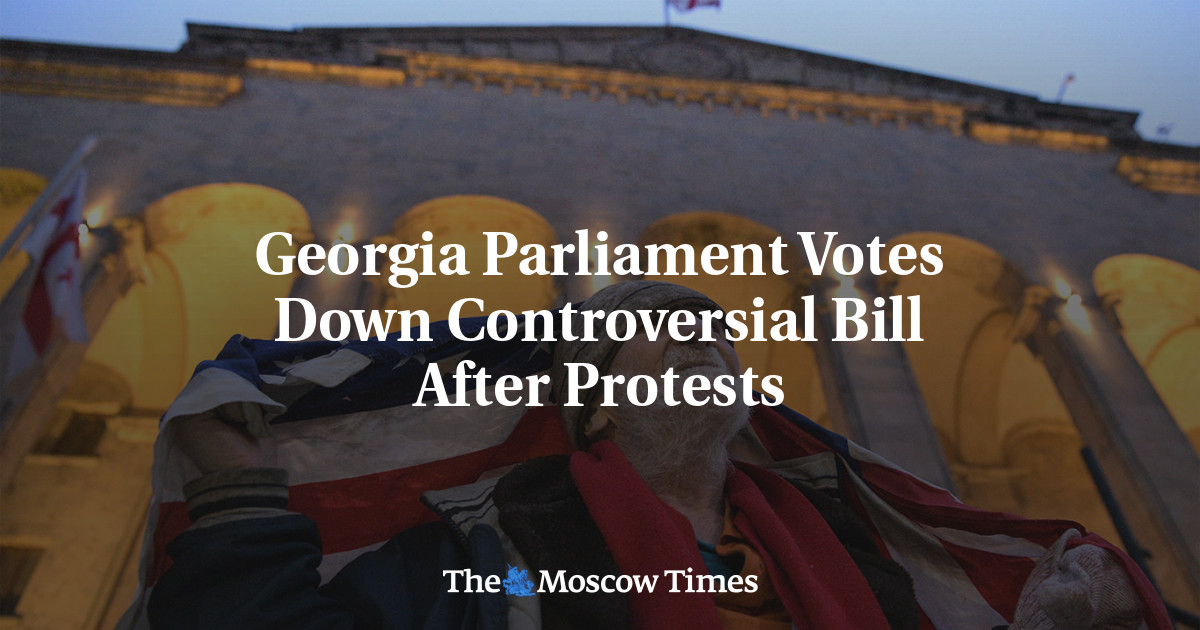
Georgia’s parliament voted Friday to drop controversial new legislation, which it earlier approved in an initial reading, sparking an international outcry and mass protests in the Caucasus country.
Tens of thousands took to the streets this week after lawmakers moved to introduce the “foreign agent” law.
On Friday, the bill was voted down in its second reading after only one lawmaker — out of 36 who voted — backed the legislation that critics had compared to laws in Russia that authorities have leveraged to silence Kremlin opponents.
Hundreds of anti-government protesters rallied outside the legislature during the vote.
Protesters clashed with police on Tuesday and Wednesday and law enforcement used water cannons and tear gas to disperse demonstrators.
The Kremlin on Friday accused the United States of stoking anti-Russian sentiment among the thousands of protesters who have taken to the streets in Georgia this week.
“We see where the president of Georgia is addressing her people from. She is not making an address from Georgia, she is making an address from America,” Kremlin spokesperson Dmitry Peskov told reporters, accusing “someone’s visible hand” of stoking “anti-Russian” sentiment.
The Georgian Dream ruling party backtracked under pressure, announcing on Thursday that it would drop the bill.
But opposition parties said in a joint statement that the protests would continue, pointing to a lack of guarantees “that Georgia is firmly on a pro-Western course.”
Georgian authorities have faced mounting international criticism over a perceived backsliding on democracy, seriously damaging Tbilisi’s ties with Brussels.
The ruling party has insisted it remains committed to Georgia’s EU and NATO membership bid, enshrined in the constitution and supported — according to opinion polls — by 80% of the population.
Georgia applied for EU membership together with Ukraine and Moldova days after Russia invaded Ukraine in February 2022.
Last June, EU leaders granted formal candidate status to Kyiv and Chisinau, but said Tbilisi must implement reforms first.